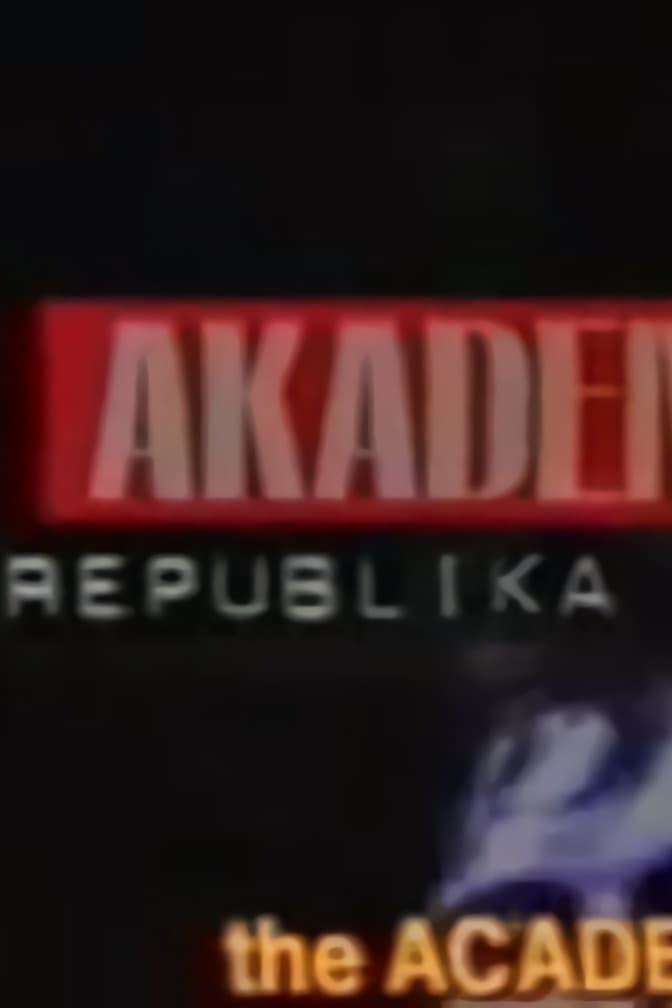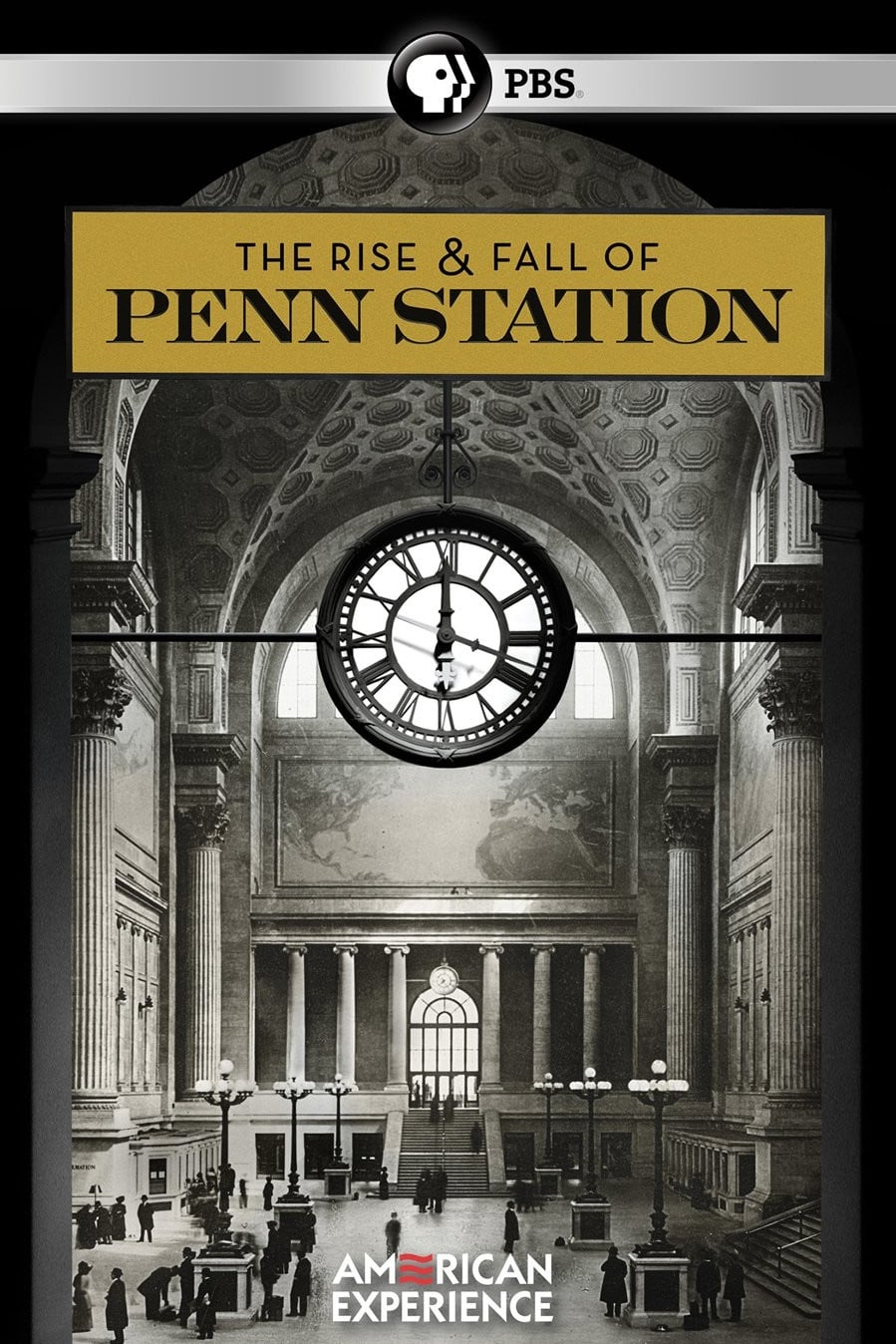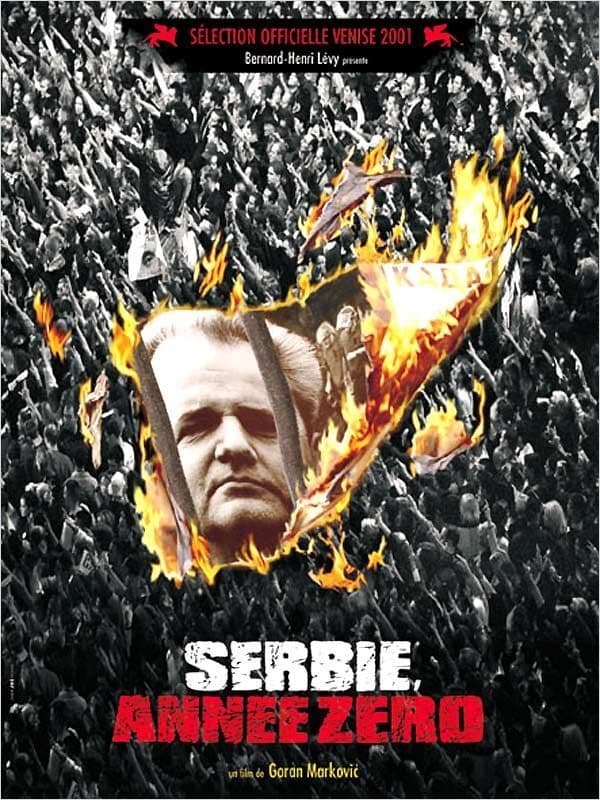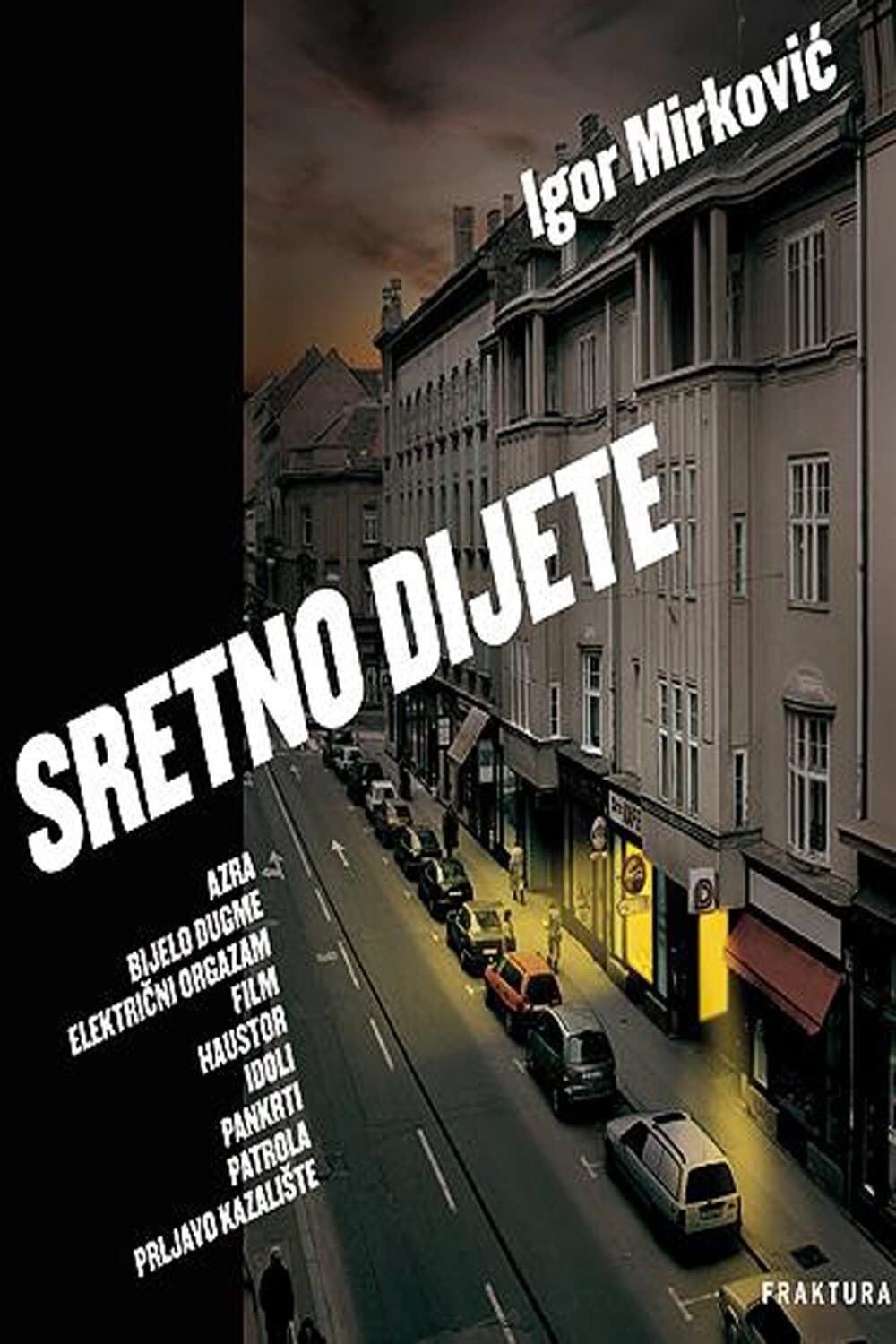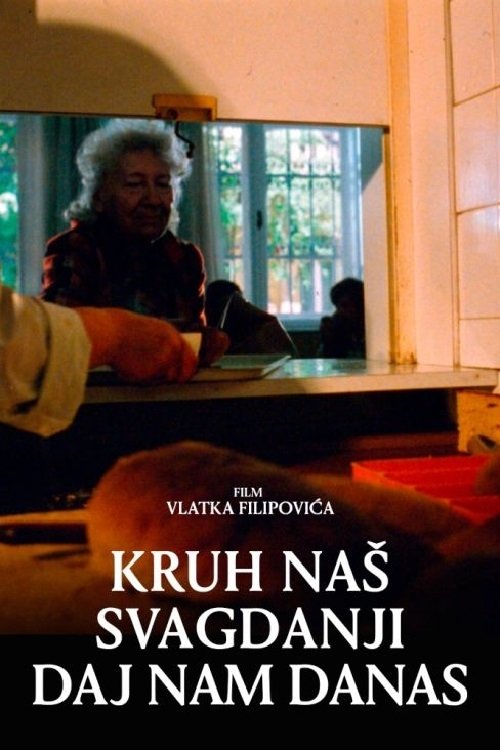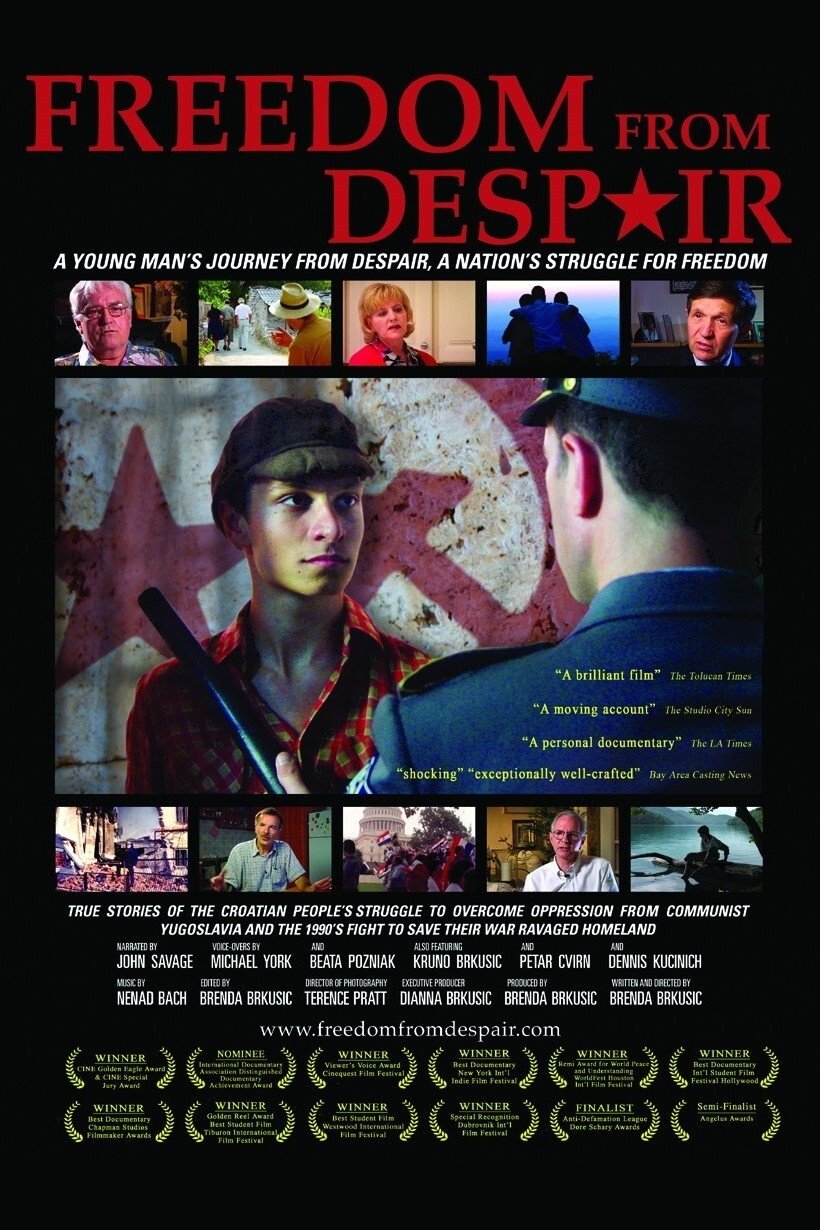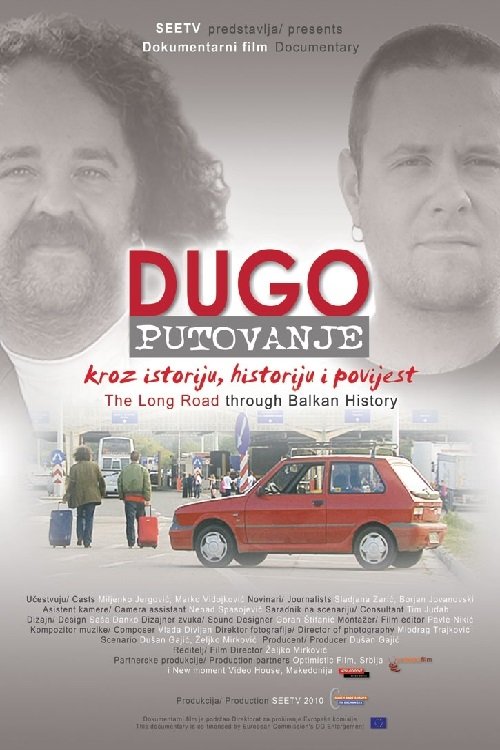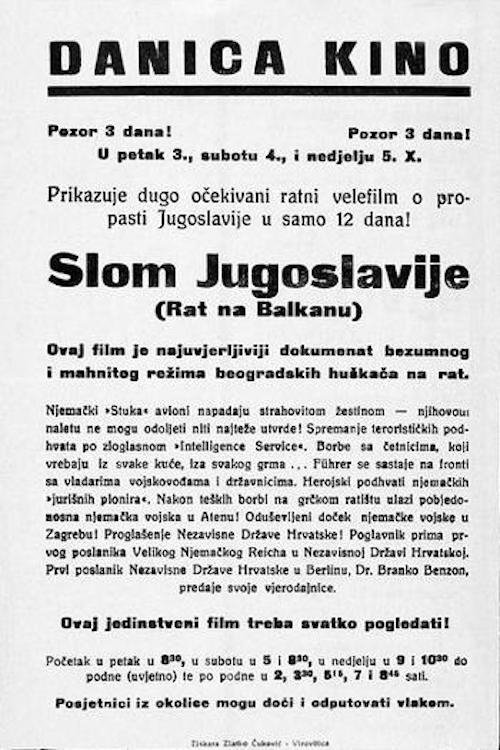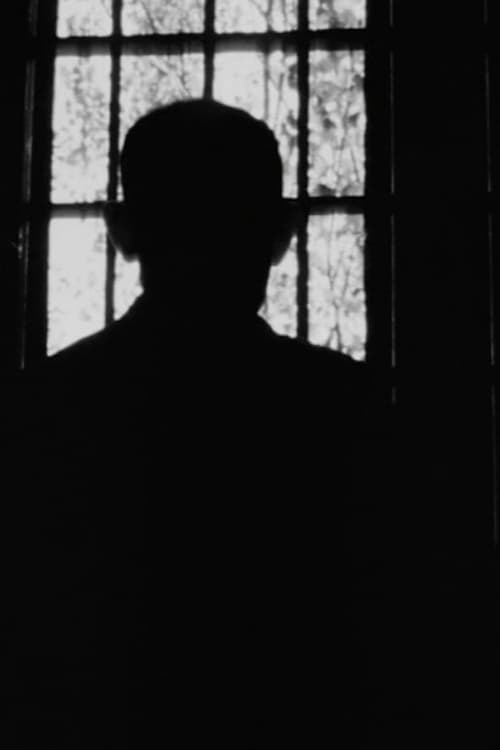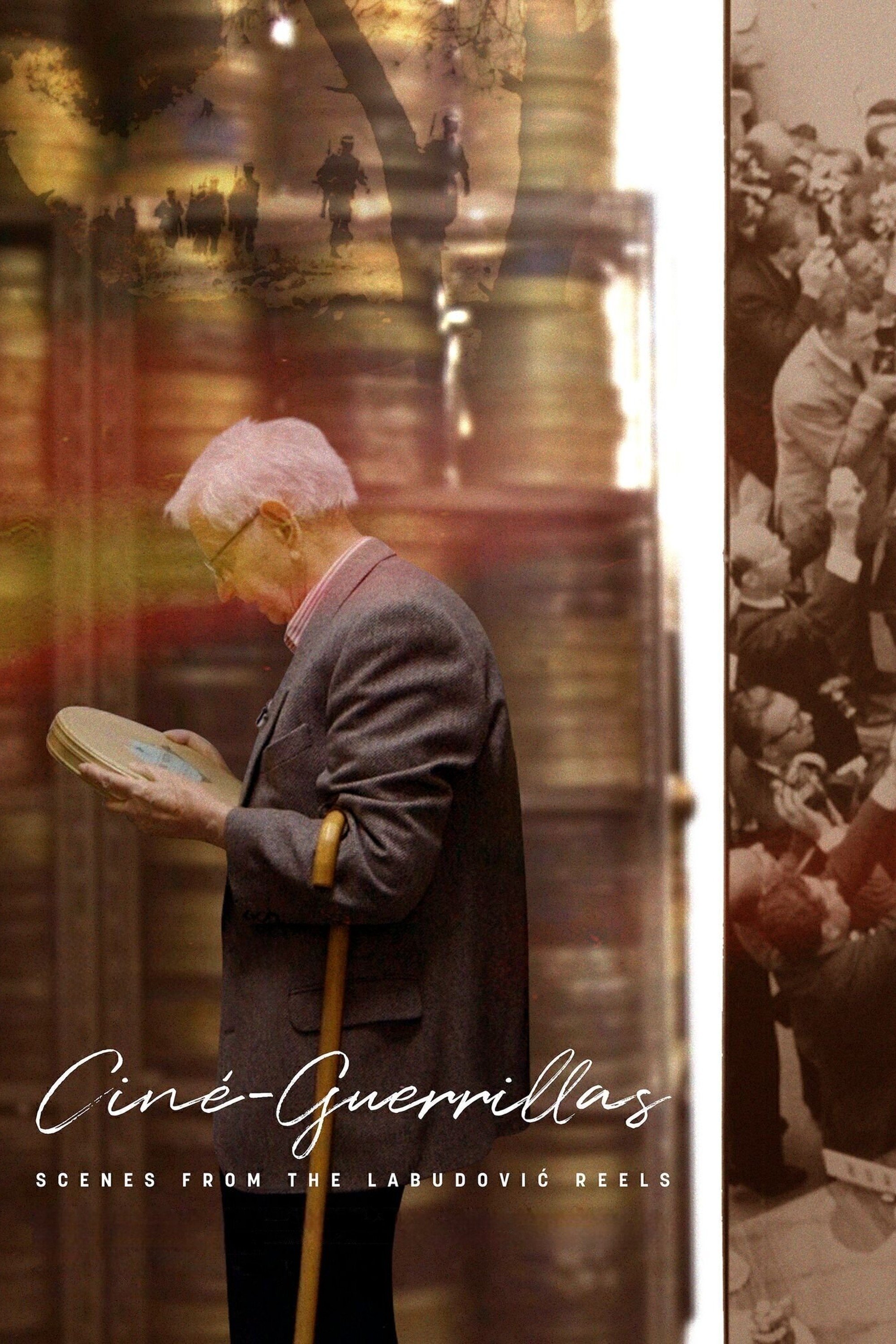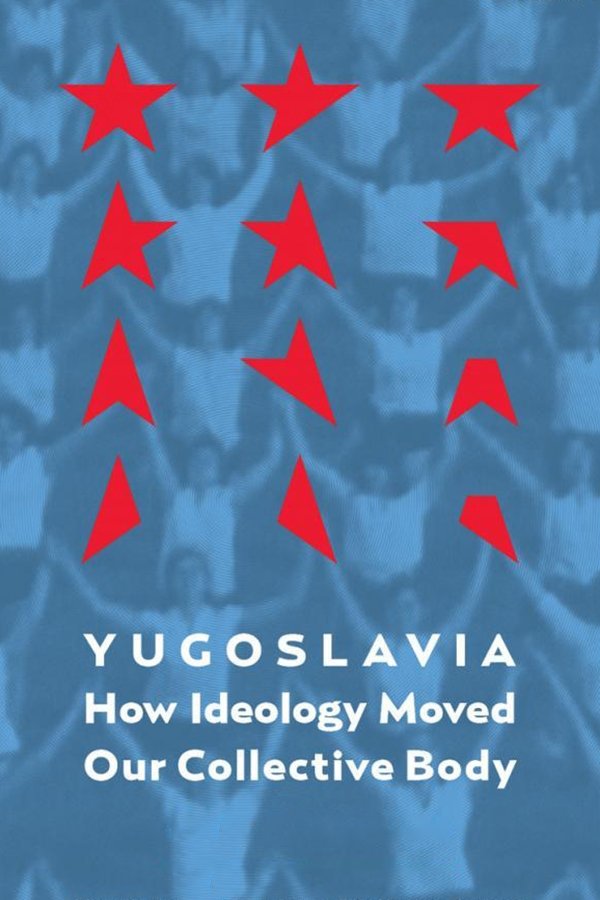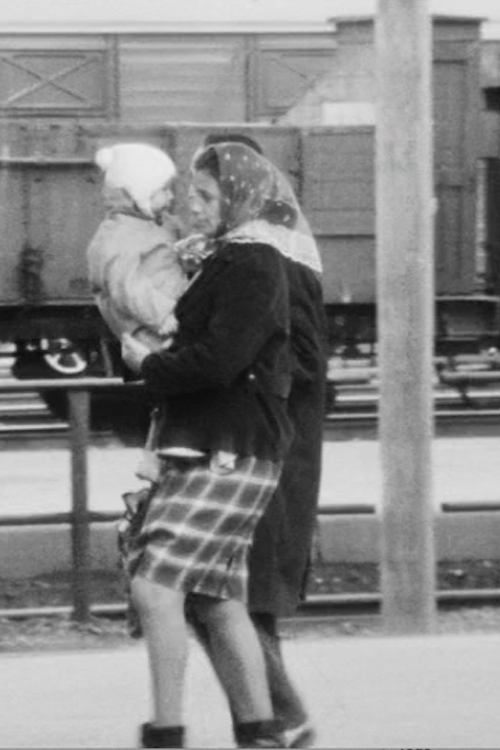
The Hub (1969)
Overview
A new, modern train station in the province of Croatia, where the only problem seems to be the numerous, unemployed people or as the station master complains: Why do films always have to show the bad side?
Production Companies
Additional Info
| Budget | $0.00 |
|---|---|
| Revenue | $0.00 |
| Original Language | sh |
| Popularity | 0.452 |
Directed By
Krsto Papić
TOP CAST
Krsto Papić
Himself
Similar Movies
Akademija the Republic
Akademija Republika shows a group of people gathered around the club from 1981 until 1995 and how it changed and influenced the cultural and night life around them.
The Arrival of a Train at La Ciotat
A group of people are standing along the platform of a railway station in La Ciotat, waiting for a train. One is seen coming, at some distance, and eventually stops at the platform. Doors of the railway-cars open and attendants help passengers off and on. Popular legend has it that, when this film was shown, the first-night audience fled the café in terror, fearing being run over by the "approaching" train. This legend has since been identified as promotional embellishment, though there is evidence to suggest that people were astounded at the capabilities of the Lumières' cinématographe.
A Train Arrives at the Station
“This film was a gift to me. I make no claims for it, nor do I offer any apologies. It comes from work on The Thoughts That Once We Had. There was one shot we had to cut whose loss I particularly regretted. It was a shot of a train pulling into Tokyo Station from Ozu’s The Only Son (1936). So I decided to make a film around this shot, an anthology of train arrivals. It comprises 26 scenes or shots from movies, 1904-2015. It has a simple serial structure: each black & white sequence in the first half rhymes with a color sequence in the second half. Thus the first shot and the final shot show trains arriving at stations in Japan from a low camera height. In the first shot (The Only Son), the train moves toward the right; in the last shot, it moves toward the left. A bullet train has replaced a steam locomotive. So after all these years, I’ve made another structural film, although that was not my original intention.”
Railway Station
Kieslowski’s later film Dworzec (Station, 1980) portrays the atmosphere at Central Station in Warsaw after the rush hour.
The Rise & Fall of Penn Station
In 1910, the Pennsylvania Railroad successfully accomplished the enormous engineering feat of building tunnels under New York City's Hudson and East Rivers, connecting the railroad to New York and New England, knitting together the entire eastern half of the United States. The tunnels terminated in what was one of the greatest architectural achievements of its time, Pennsylvania Station. Penn Station covered nearly eight acres, extended two city blocks, and housed one of the largest public spaces in the world. But just 53 years after the station’s opening, the monumental building that was supposed to last forever, to herald and represent the American Empire, was slated to be destroyed.
City of Splendour
A documentary about punk and subculture scene of Pula, Croatia from 1978 to 1991, the city that gave birth to one of the most vivid punk and alternative rock scenes in former Yugoslavia, despite having population of just over 60,000 residents.
Fragments of Humanity
In the Kosovo War, human dignity was shattered by the terrors of the Serbian government and the Albanian liberation army. Truths about the victims’ fates faded away, which is why a Finnish forensic research group led by Helena Ranta got a mission to act as an unbiased agent and investigate the real course of events.
Serbia, Year Zero
Documentary that follows events after the fall of Slobodan Milosevic, while looking back on the previous fifteen years, tracing his rise to power. Personal testimony alternates with analysis of a disintegrating society.
The Happy Child
The Happy Child is a story of "New Wave" rock genre predominant in the ex-Yugoslavia during the socialist 70's and 80's.
From 3 to 22
A movie follows a regular working day of a woman who works in a factory. She wakes up at 3am and goes to sleep at 10pm.
Our Daily Bread Give Us Today
The film shows the work of the Red Cross in Sarajevo during Yugoslavia. The Red Cross has been present in Bosnia and Herzegovina since 1912, and thanks to its work, many families had a hot meal every day.
Laush
A documentary-narrative film which looks at real events and personal phenomena of artist Zarko Lausevic. "Laush" above all tells a story of an evil time we've all been through, represents both sides and is made with empathy and respect towards everyone involved in the tragic incident. Through recreations, narration, memories of colleagues and quotes from the book "A Year Passes, a Day Will Never Pass" which the artist wrote during the hardest stage of his life, the weight of his fate is presented. The aim of this project is to portray the life of brilliant actor, who in the midst of great fame, disappeared from the scene through the cruelty of dubious times.
Freedom from Despair
True stories of the Croatian People's struggle to overcome oppression from communist Yugoslavia and the 1990's fight to save their war ravaged homeland.
The Long Road Through Balkan History
Bosnian Croat writer Miljenko Jergović and Serbian writer Marko Vidojković replace one another by the steering wheel of Yugo, a symbol of their common past while driving on the Brotherhood and Unity Highway that stretched across five of six republics of Yugoslavia.
Tuna Fishermen
Film director Branko Belan follows the journey of fishermen as they set out to catch tuna around the Velebit Channel.
When My Knife Strikes You
Shot in various villages throughout Yugoslavia, this is a disturbing document of a time when people were stabbing each other with knives without any real reason. Murderers, people who witness these murders and the families of victims all talk about the senseless violence and the human condition.
Ciné-Guerrillas: Scenes from the Labudović Reels
An archival road trip with Stevan Labudović, cameraman to Yugoslav President Tito and cinematic eye of the Algerian revolution, investigating the role of cinema in the liberation struggles of the Third World and reconstructing the birth of the Non-Aligned Movement.
Yugoslavia: How Ideology Moved Our Collective Body
A research-based essay film, but also a very personal perspective on the history of socialist Yugoslavia, its dramatic end, and its recent transformation into a few democratic nation states.
